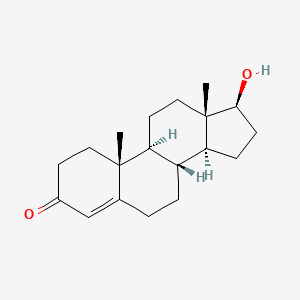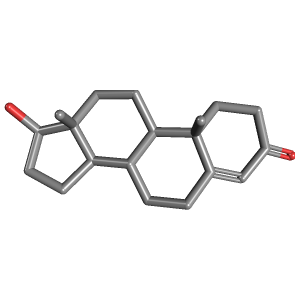Testosterone Information
Click here to view all Testosterone productsThe information, including but not limited to, text, graphics, images and other material contained on this website are for informational purposes only. No material on this site is intended to be a substitute for the consultation, diagnosis, and/or medical treatment of a qualified physician or healthcare provider.


Testosterone is a hormone that belongs to a class of male sex hormones called androgens. It is primarily produced in the testicles in males and in smaller amounts in the ovaries and adrenal glands in females.
Testosterone plays a crucial role in the development and maintenance of male reproductive tissues, including the testes, prostate, and seminal vesicles. It is responsible for the development of secondary sexual characteristics in males, such as increased muscle mass, body hair growth, deepening of the voice, and the growth and maturation of the penis and testes during puberty.
In addition to its role in sexual development, testosterone also has various other functions in the body. It helps regulate bone density, fat distribution, and red blood cell production. Testosterone is also involved in maintaining libido, mood, energy levels, and cognitive function.
The production of testosterone is regulated by a complex feedback mechanism involving the hypothalamus and pituitary gland in the brain. The hypothalamus releases a hormone called gonadotropin-releasing hormone (GnRH), which signals the pituitary gland to release luteinizing hormone (LH) and follicle-stimulating hormone (FSH). LH then stimulates the Leydig cells in the testes to produce testosterone.
Once produced, testosterone circulates in the bloodstream, where it can bind to androgen receptors in various tissues throughout the body. This binding activates specific genes, leading to the expression of certain proteins and the initiation of various physiological effects.
Testosterone levels naturally decline with age, and low levels can lead to symptoms such as decreased libido, fatigue, decreased muscle mass, and mood changes. In some cases, testosterone replacement therapy may be prescribed to address these symptoms. However, it is important to note that testosterone should only be used under medical supervision, as excessive levels can have adverse effects on health.
Synonyms of Testosterone
- testosterone
- 58-22-0
- Androderm
- Testim
- Testosteron
- Mertestate
- Testoderm
- Virosterone
- Sustanon
- Homosterone
- Androlin
- Testiculosterone
- AndroGel
- Synandrol F
- Testosteroid
- Andronaq
- Andropatch
- Andrusol
- Homosteron
- Orquisteron
- Perandren
- Primotest
- Primoteston
- Sustanone
- Testandrone
- Testobase
- Testogel
- Testopropon
- Testrone
- Oreton
- Relibra
- Teslen
- Testryl
- Cristerona T
- Testoviron T
- Neotestis
- Malerone
- trans-Testosterone
- Cristerone T
- Testoviron Schering
- Geno-cristaux gremy
- Testostosterone
- Testolin
- Testoviron
- LibiGel
- 17beta-Hydroxyandrost-4-en-3-one
- Sustason 250
- Percutacrine androgenique
- Neo-Hombreol F
- Oreton-F
- Testosteronum
- Intrinsa
- Testosterona
- Striant
- Testoject-50
- Testoderm Tts
- Testosterone hydrate
- Neo-testis
- Testro AQ
- Malestrone (amps)
- Andro 100
- Testex
- Virormone
- beta testosterone
- Malogen, aquaspension injection
- Vogelxo
- Testosteronum [INN-Latin]
- Testosterona [INN-Spanish]
- Androst-4-en-17beta-ol-3-one
- CDB 111C
- Livensa
- Nasobol
- Natesto
- Axiron
- Tefina
- CompleoTRT
- Testopel Pellets
- 17beta-Hydroxy-4-androsten-3-one
- 7-beta-Hydroxyandrost-4-en-3-one
- COL 1621
- delta4-Androsten-17beta-ol-3-one
- Testosterone ciii
- 17beta-Hydroxyandrost-4-ene-3-one
- 17-beta-Hydroxyandrost-4-en-3-one
- 4-Androsten-17beta-ol-3-one
- Androgel 1%
- CP 601B
- CCRIS 574
- 17-Hydroxy-(17beta)-androst-4-en-3-one
- Androgel 1.62%
- 17beta-Hydroxy-delta(sup4)-androsten-3-one
- delta(sup 4)-Androsten-17(beta)-ol-3-one
- 17-Hydroxy-(17-beta)-androst-4-en-3-one
- Halotensin
- Fortesta
- 17-beta-Hydroxy-delta(sup 4)-androsten-3-one
- AA 2500
- Androst-4-en-3-one, 17beta-hydroxy-
- CHEBI:17347
- HSDB 3398
- Androst-4-en-3-one, 17-beta-hydroxy-
- Testosterone [INN:BAN]
- NSC 9700
- EINECS 200-370-5
- (+)-testosterone
- Androderm (TN)
- UNII-3XMK78S47O
- Androgel (TN)
- Striant (TN)
- Bio-T-Gel
- Testim (TN)
- ANDROLAN
- Androst-4-en-3-one, 17-hydroxy-, (17beta)-
- 3XMK78S47O
- DTXSID8022371
- (17beta)-17-Hydroxyandrost-4-en-3-one
- Oreton F
- ANDROID-T
- LPCN 1021
- NSC-9700
- Testosterone (JAN/USP)
- (8R,9S,10R,13S,14S,17S)-17-hydroxy-10,13-dimethyl-1,2,6,7,8,9,11,12,14,15,16,17-dodecahydrocyclopenta[a]phenanthren-3-one
- Androst-4-en-3-one, 17-hydroxy-, (17-beta)-
- Testosterone [USP:INN:BAN]
- DTXCID302371
- 4-androstene-17beta-ol-3-one
- 17b-hydroxy-4-androsten-3-one
- delta4-androsten-17b-ol-3-one
- Androst-4-en-3-one, 17-hydroxy-, (17b)-
- EC 200-370-5
- 17beta-testosterone
- Androst-4-en-3-one, 17-hydroxy-, (17.beta.)-
- CMC_13449
- TESTOSTERONE (MART.)
- TESTOSTERONE [MART.]
- Androsorb
- Testaqua
- Testopel
- TESTOSTERONE (EP IMPURITY)
- TESTOSTERONE [EP IMPURITY]
- TESTOSTERONE (EP MONOGRAPH)
- TESTOSTERONE [EP MONOGRAPH]
- TESTOSTERONE (USP MONOGRAPH)
- TESTOSTERONE [USP MONOGRAPH]
- T-Cypionate
- Virilon IM
- Testrin-P.A
- 17.beta.-Testosterone
- SMR000058344
- Andronate 100
- Andronate 200
- Andropository 200
- Testamone 100
- Everone 200
- Andryl 200
- Scheinpharm Testone-Cyp
- Testred Cypionate 200
- Androst-4-en-3-on-17B-ol
- CHEMBL386630
- component of Duogen (Salt/Mix)
- component of Tostrex (Salt/Mix)
- component of Di-Met (Salt/Mix)
- NSC9700
- component of Intrinsa (Salt/Mix)
- Epitestosteron
- Lumitestosteron
- 4-Androsten-17.beta.-ol-3-one
- 4-Androsten-3-one-17.beta.-ol
- Tostrelle
- Tostrex
- Viatrel
- component of Di-Genik (Salt/Mix)
- testosteron-
- 4-Androsten-3-one, 17b-hydroxy-
- 9b-testosterone
- component of Mal-O-Fem (Salt/Mix)
- Testostroval-PA
- Testosterone, 1
- 3kdm
- 17b-Testosterone
- 17-.beta.-Hydroxyandrost-4-en-3-one
- NCGC00091018-01
- 8-iso-testosterone
- 17 beta Hydroxy 4 Androsten 3 one
- 17-beta-Hydroxy-4-Androsten-3-one
- (+-)-testosterone
- Axiron (TN)
- 13-iso-testosterone
- mpp10
- TESTSTERONE
- 9b,10a-testosterone
- 17.beta.-Hydroxy-.DELTA.4-androsten-3-one
- 17-Hydroxyandrost-4-en-3-one, (17.beta.)-
- Therapeutic Testosterone
- (+-)-retrotestosterone
- Testosterone, >=98%
- Testosterone [BAN:INN]
- TESTOSTERONE [MI]
- TESTOSTERONE [INN]
- TESTOSTERONE [JAN]
- D06XMU
- Epitope ID:135865
- TESTOSTERONE [HSDB]
- TESTOSTERONE [INCI]
- Testosterone EP Impurity C
- (+-)-8-iso-testosterone
- SCHEMBL8452
- 4-androsten-17-ol-3-one
- TESTOSTERONE [VANDF]
- 4-Androsten-3-one-17b-ol
- MLS000563091
- MLS001032098
- MLS001306401
- MLS001424262
- MLS002174283
- BIDD:ER0555
- TESTOSTERONE [WHO-DD]
- D4-Androsten-17b-ol-3-one
- Androst-4-en-17b-ol-3-one
- BDBM8885
- GTPL2858
- Androst-4-ene-17b-ol-3-one
- TESTOSTERONE [EMA EPAR]
- 17-Hydroxy-4-androsten-3-one
- 17-hydroxy-D4-androsten-3-one
- 17-hydroxy-androst-4-en-3-one
- 17beta-hydroxy-4-androsten-3one
- TESTOSTERONE [GREEN BOOK]
- Testosterone, cell culture tested
- 17b-Hydroxy-androst-4-en-3-on
- 17b-Hydroxy-D4-androsten-3-one
- 17b-Hydroxyandrost-4-ene-3-one
- 1i37
- 17a-hydroxy-androst-4-en-3-one
- 17b-hydroxy-androst-4-en-3-one
- HMS2052N11
- HMS2272B03
- HMS2272P03
- TESTOSTERONE [ORANGE BOOK]
- (8R,9S,10R,13S,14S,17S)-17-Hydroxy-10,13-dimethyl-6,7,8,9,10,11,12,13,14,15,16,17-dodecahydro-1H-cyclopenta[a]phenanthren-3(2H)-one
- 17-Hydroxy-10,13-dimethyl-1,2,6,7,8,9,10,11,12,13,14,15,16,17-tetradecahydro-cyclopenta[a]phenanthren-3-one
- 17beta-Hydroxy-3-oxo-4-androstene
- Tox21_200689
- HY-15554A
- LMST02020002
- RB3046
- 17b-hydroxy-8a-androst-4-en-3-one
- delta-4-androsten-17-beta-ol-3-one
- rac-17b-hydroxy-androst-4-en-3-one
- AKOS015894897
- 17a-hydroxy-13a-androst-4-en-3-one
- 17a-hydroxy-14b-androst-4-en-3-one
- 17b-hydroxy-13a-androst-4-en-3-one
- CCG-101189
- CS-1415
- CS-O-02507
- DB00624
- NC00439
- CAS-58-22-0
- Testosterone 1.0 mg/ml in Acetonitrile
- (17?)-17-Hydroxyandrost-4-en-3-one
- 17b-hydroxy-(8a)-androst-4-en-3-one
- 17b-hydroxy-(9b)-androst-4-en-3-one
- NCGC00258243-01
- (17b)-17-hydroxy-androst-4-en-3-one
- 17a-hydroxy-(13a)-androst-4-en-3-one
- 17b-hydroxy-(10a)-androst-4-en-3-one
- 17b-hydroxy-(13a)-androst-4-en-3-one
- AC-14899
- CPD000058344
- SMR001261453
- Testosterone, purum, >=99.0% (HPLC)
- LS-148813
- Testosterone 100 microg/mL in Acetonitrile
- rac-17b-hydroxy-(13a)androst-4-en-3-one
- rac-17b-hydroxy-(8a)-androst-4-en-3-one
- T0027
- 17b-hydroxy-(8a,10a)-androst-4-en-3-one
- 17b-hydroxy-(9b,10a)-androst-4-en-3-one
- BIM-0061761.0001
- C00535
- D00075
- rac-17b-hydroxy-(9b,10a)androst-4-en-3-one
- S00309
- AB00973630-03
- Testosterone, VETRANAL(TM), analytical standard
- Androst-4-en-3-one, 17-hydroxy, (17.beta.)-
- Q-101251
- Q1318776
- B5DEE83F-632B-48A1-A0ED-A51E7F13DF2E
- TESTOSTERONE ENANTATE IMPURITY D [EP IMPURITY]
- TESTOSTERONE PROPIONATE IMPURITY C [EP IMPURITY]
- Testosterone, European Pharmacopoeia (EP) Reference Standard
- (8alpha,10alpha,13alpha,14beta,17alpha)-17-hydroxyandrost-4-en-3-one
- Testosterone; 4-Androsten-17?-ol-3-one; 17?-Hydroxy-4-androsten-3-one
- Testosterone for impurity D identification, European Pharmacopoeia (EP) Reference Standard
- Testosterone for system suitability, European Pharmacopoeia (EP) Reference Standard
- (1S,2R,10R,11S,14S,15S)-14-hydroxy-2,15-dimethyltetracyclo[8.7.0.0;{2,7}.0;{11,15}]heptadec-6-en-5-one
- 1050678-68-6
- 17?-hydroxyandrost-4-en-3-one; epitestosterone; 17-epi-Testosterone; 17?-cis-Testosterone; 4-Androstene-17?-ol-3-one; Isotestosterone

